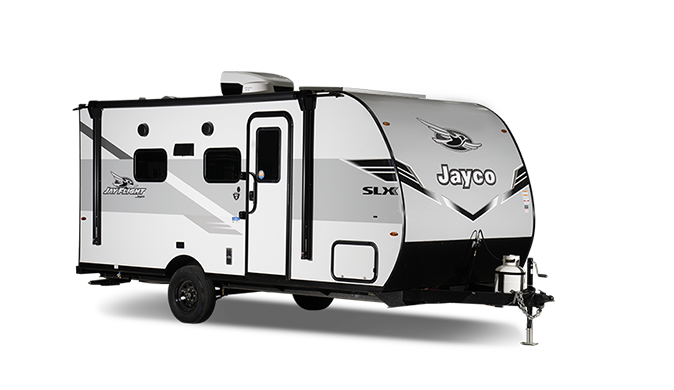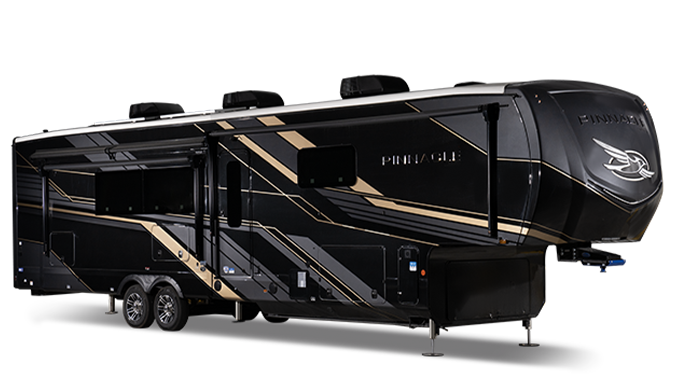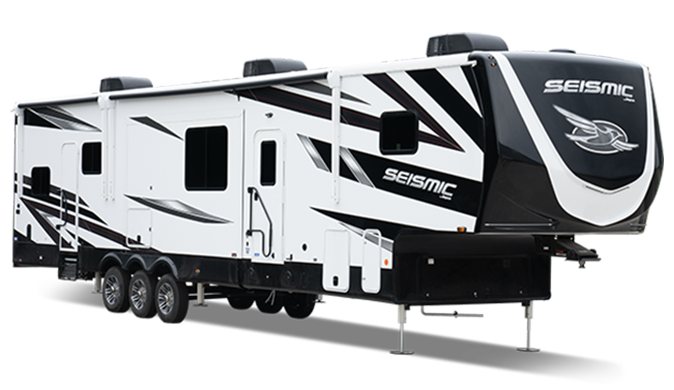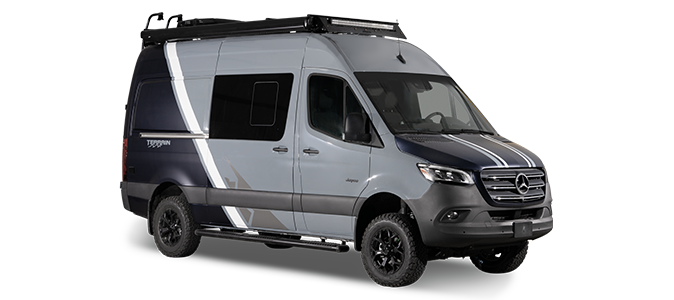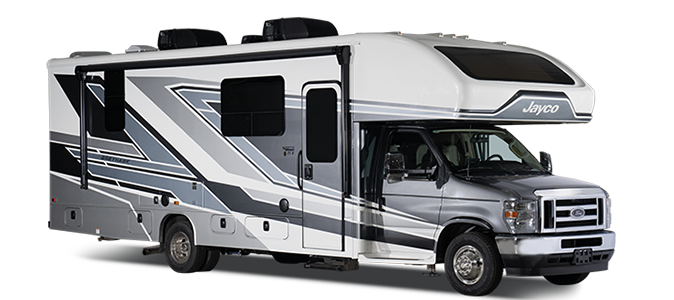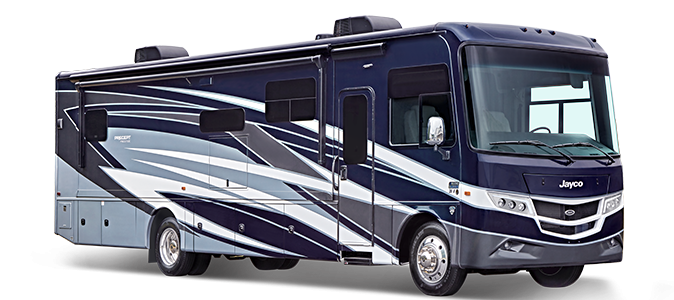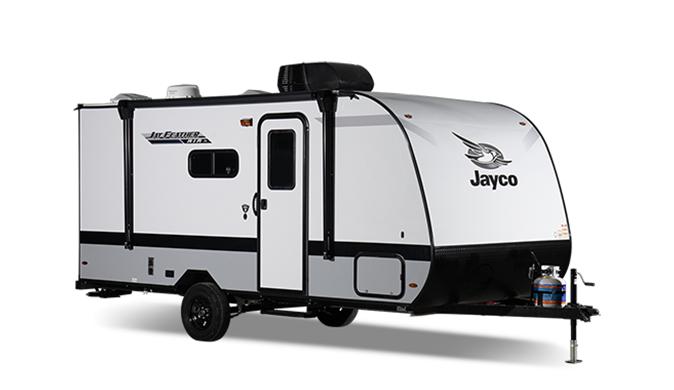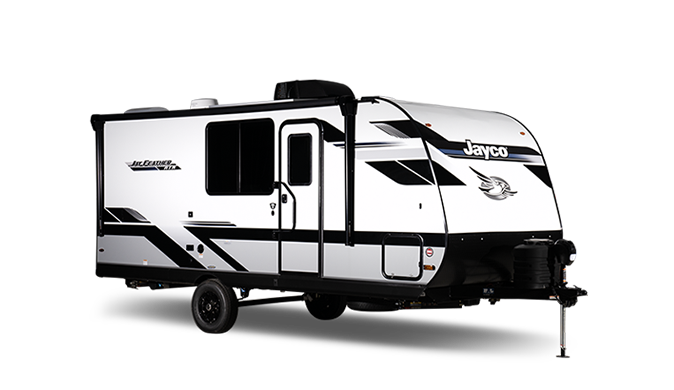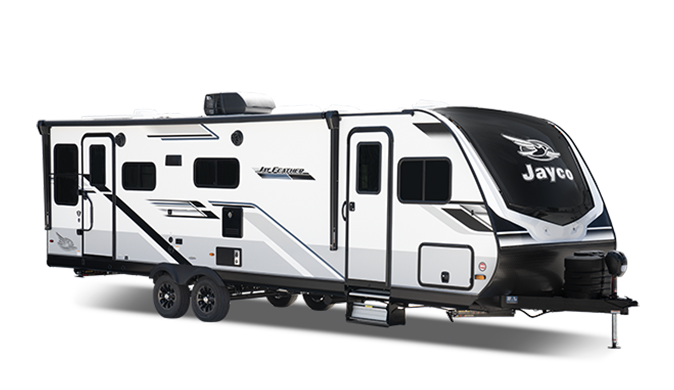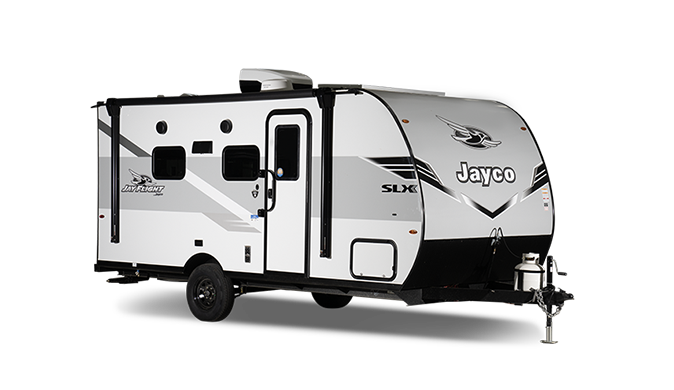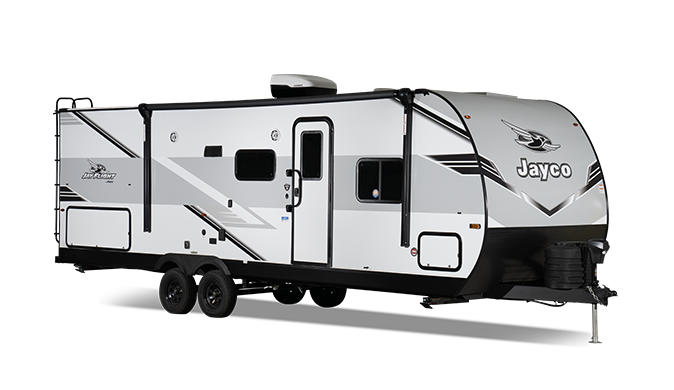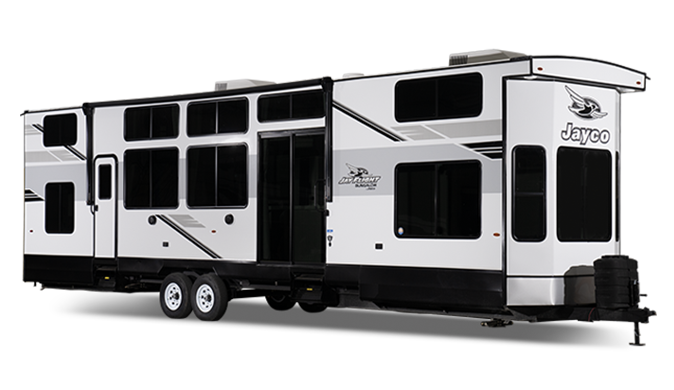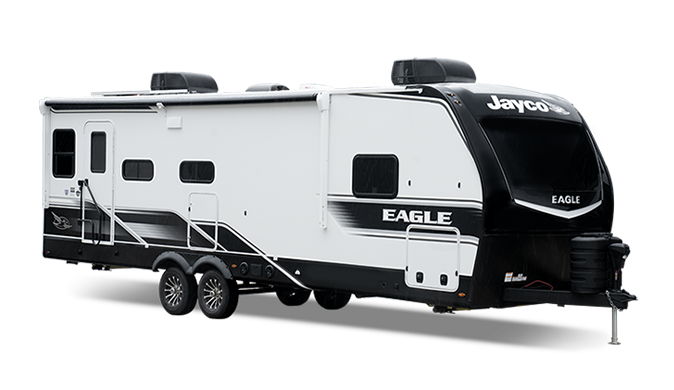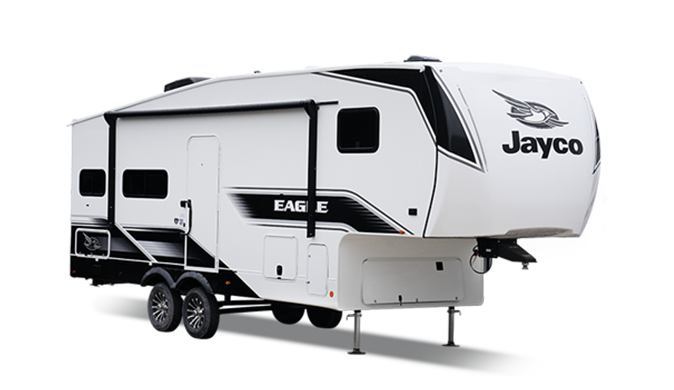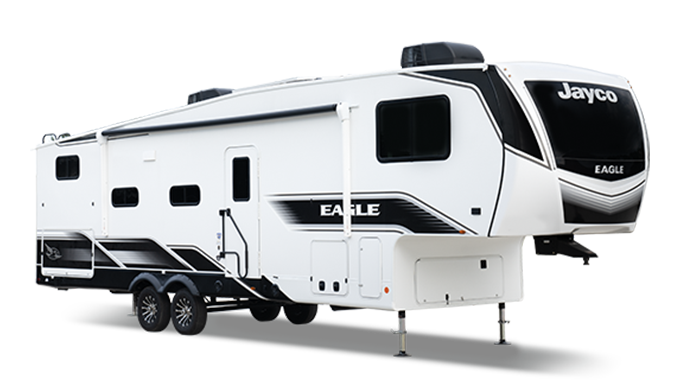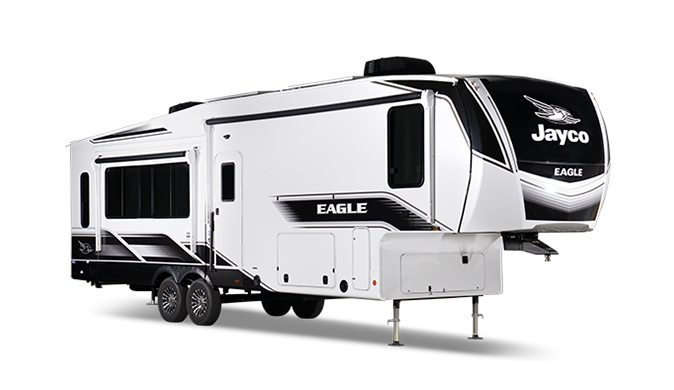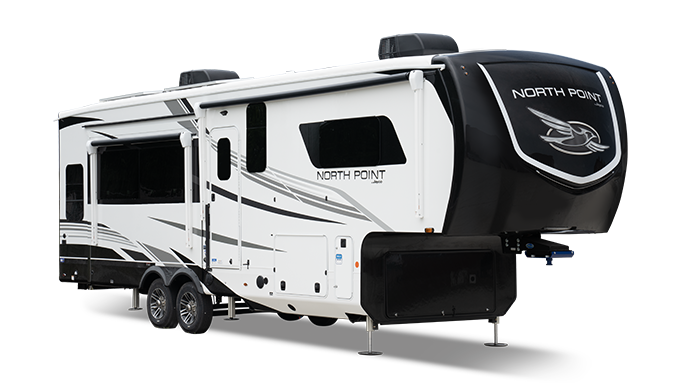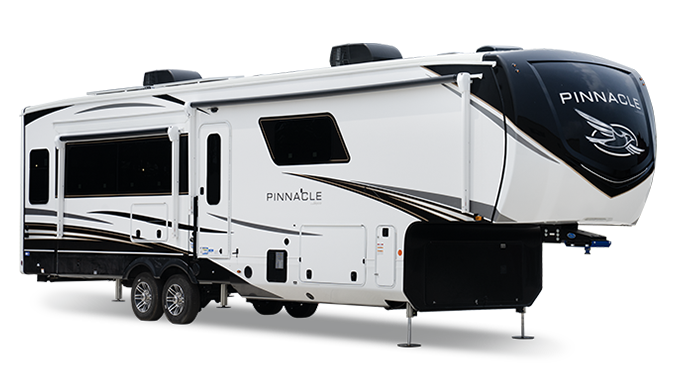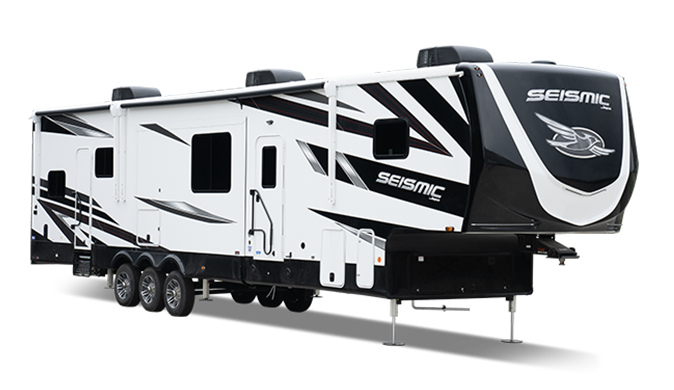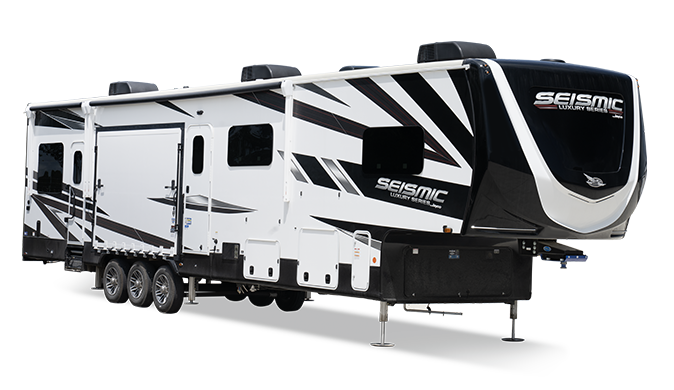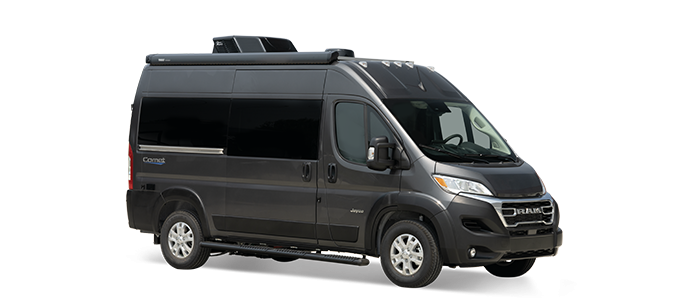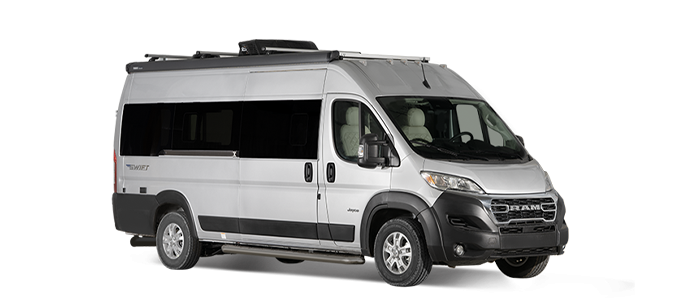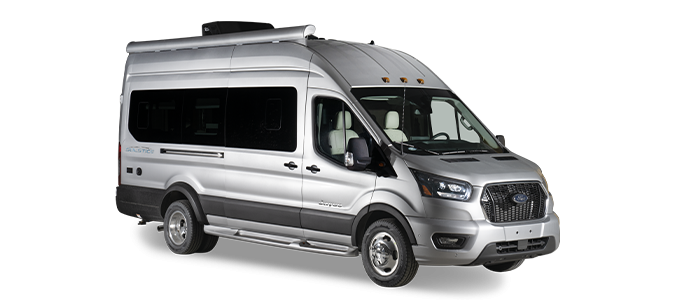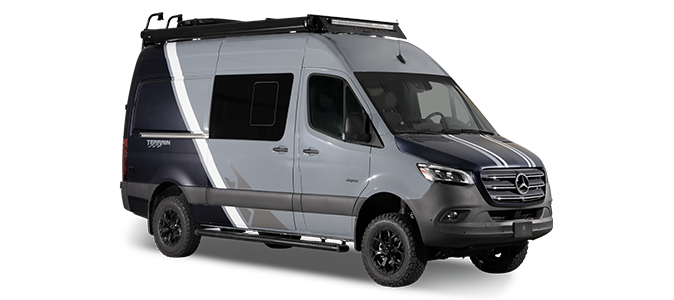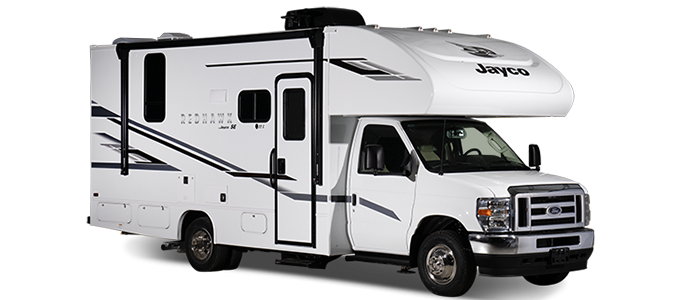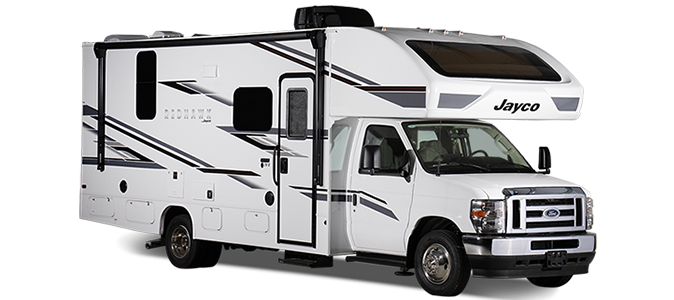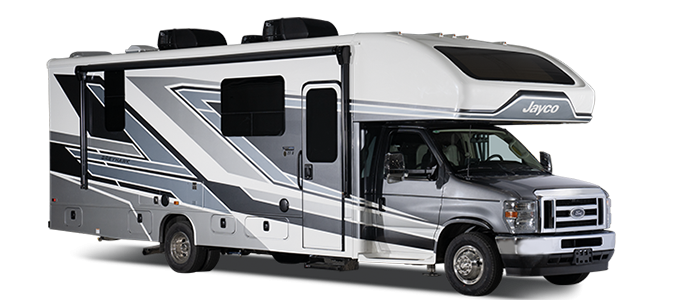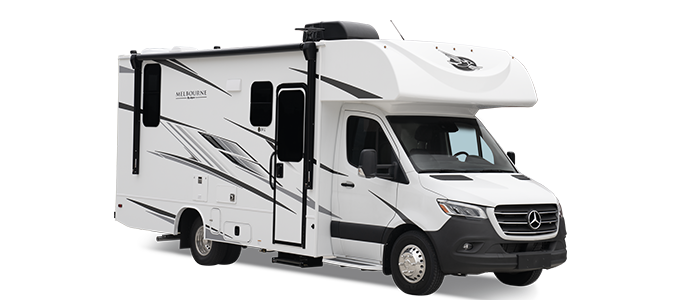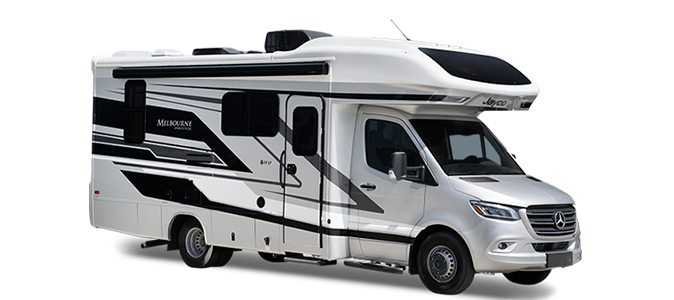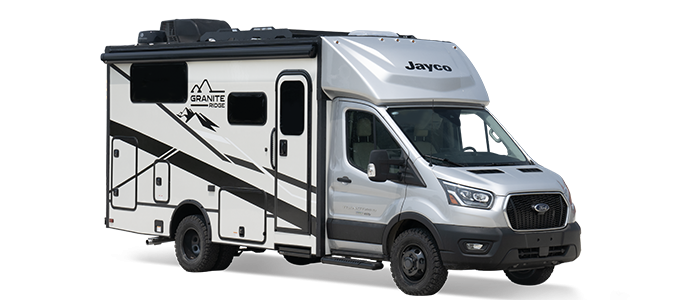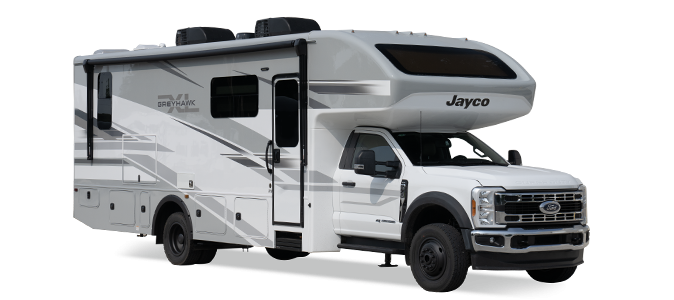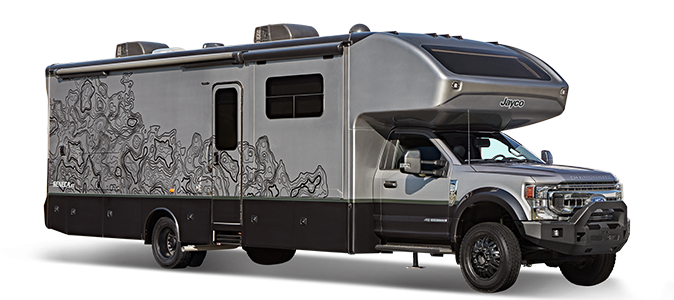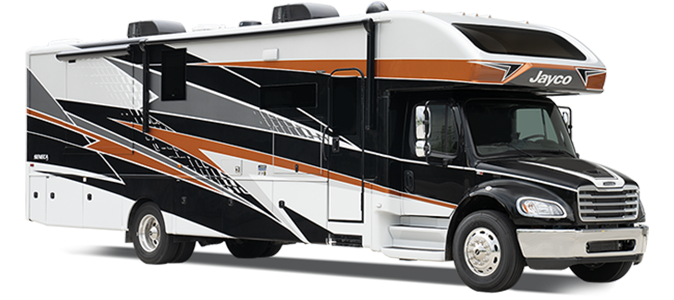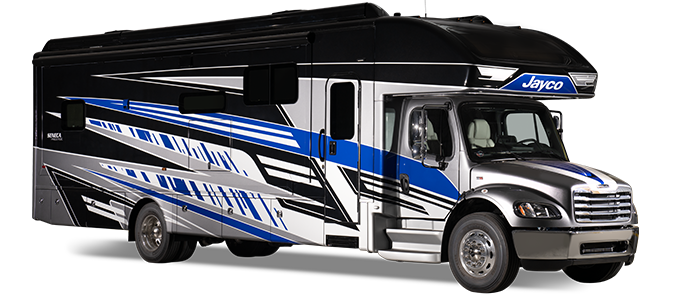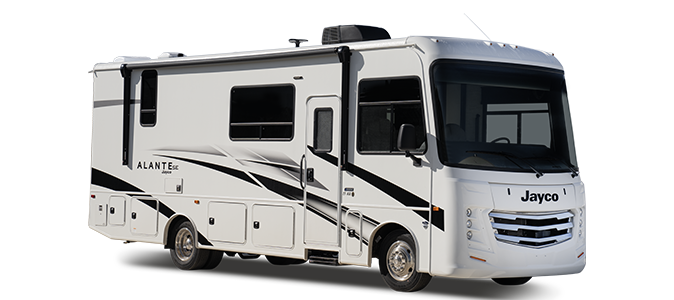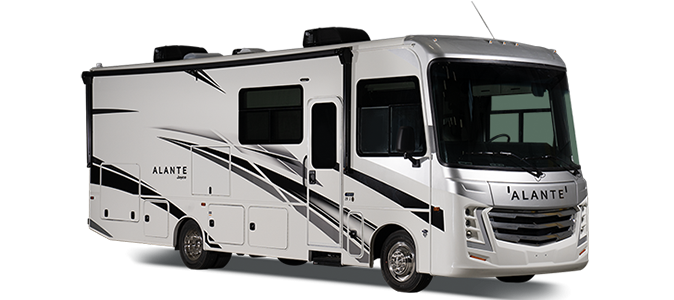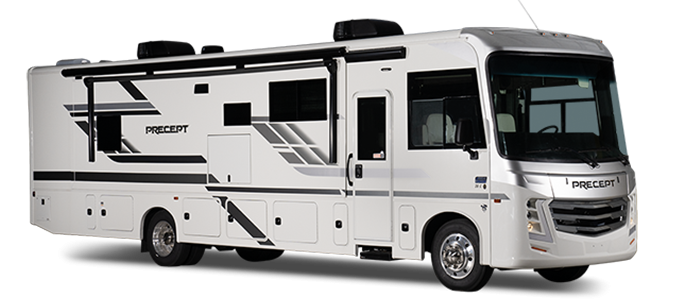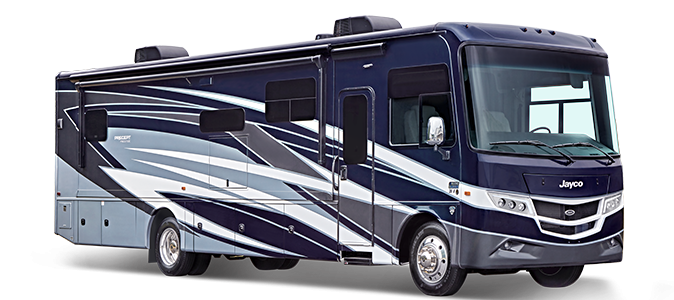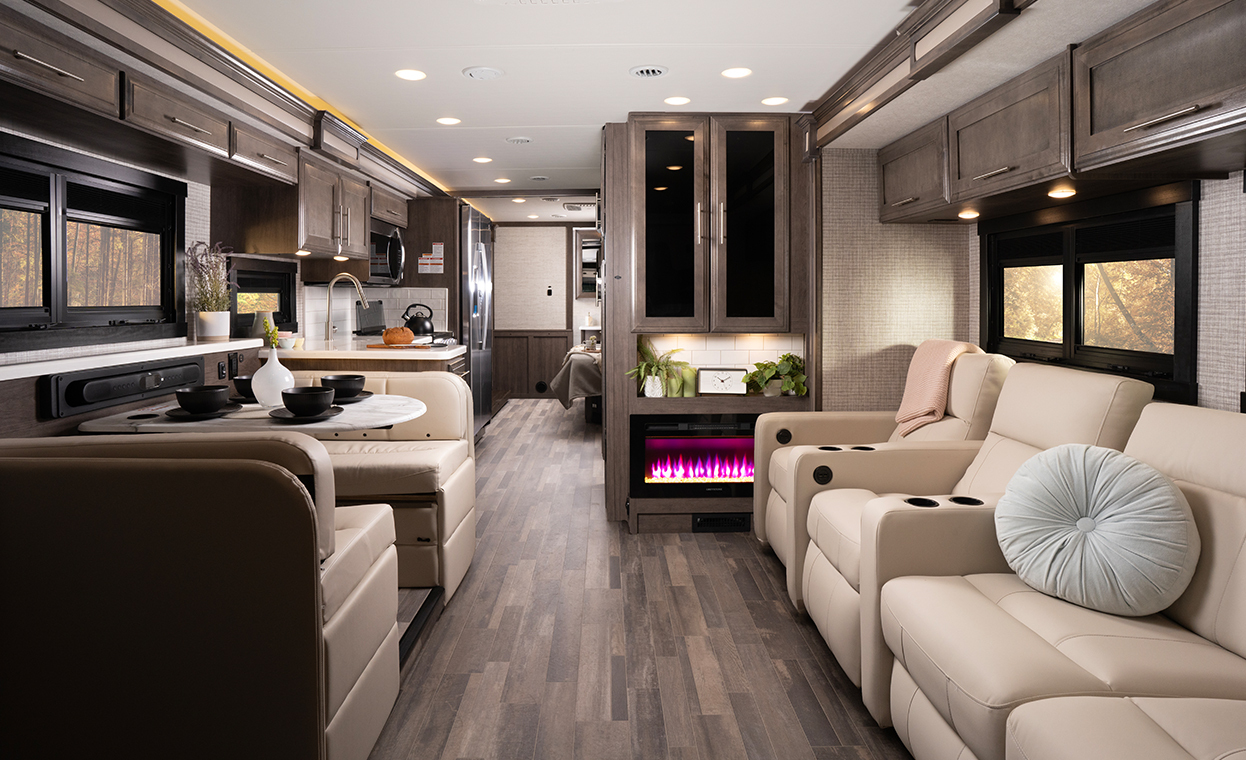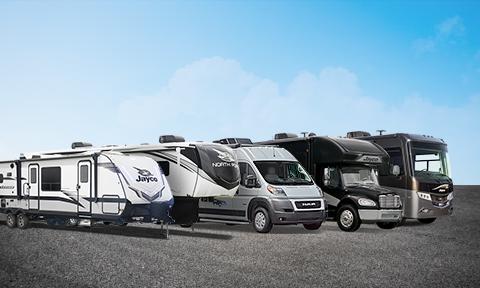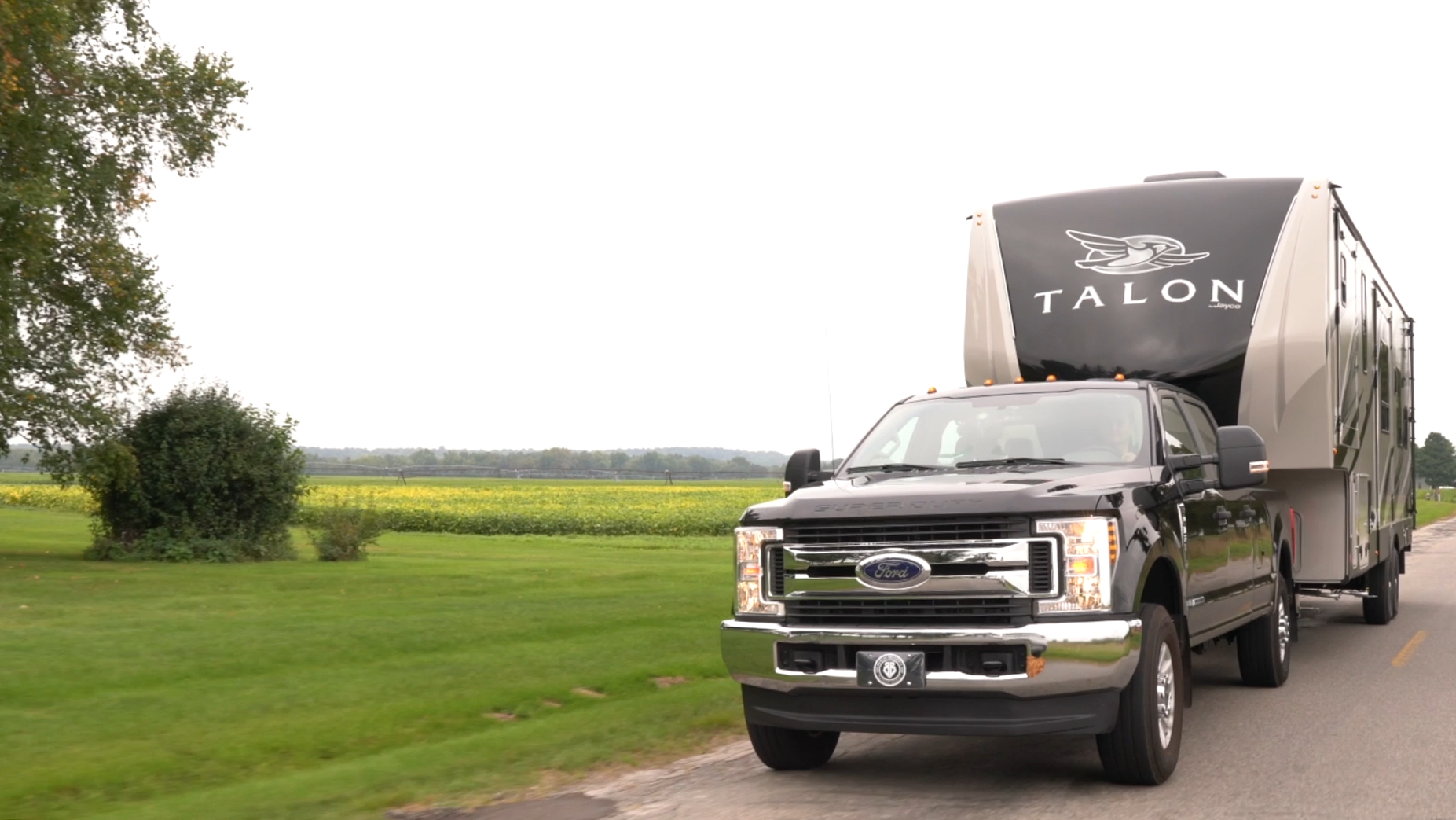When shopping for an RV you might come across terms such as GVWR, UVW, GCCC and many more. Lucky for you, we’re here to clear the air and decipher these terms for you to make your shopping experience as seamless as possible so that you can confidently purchase the RV that is right for you.
Gross Vehicle Weight Rating (GVWR)
GVWR means the maximum permissible weight of the RV, including the UVW plus all passengers, personal items, cargo, fluids, options and dealer-installed accessories. The GVWR is equal to or greater than the sum of the UVW and the GCCC.
Unloaded Vehicle Weight
Sometimes referred to as “Dry Weight,” UVW means the weight of an RV as built at the factory. The UVW, as used in Jayco product literature and other promotional materials, does not include cargo, fresh water, propane gas, occupants, options or dealer-installed accessories. It does include so-called “forced options”, like the Customer Value Package.
Gross Cargo Carrying Capacity (GCCC)
GCCC means the maximum cargo carrying capacity. GCCC is equal to the GVWR (Gross Vehicle Weight Rating) minus the UVW (Unloaded Vehicle Weight). The GCCC will be reduced by the weight of fresh water, waste water, propane gas, occupants, personal items, or dealer-installed accessories.
Hitch Weight (HW)
Also known as tongue weight, HW is that portion of the weight of the trailer that is carried on the hitch. This information is important in matching the hitch on your tow vehicle with the trailer or vehicle to be towed. Hitches are rated both by their towing capacity and their tongue weight, also known as tongue load or vertical load rating.
Gross Axle Weight Rating (GAWR)
GAWR is the maximum allowable weight each axle assembly is designed to carry. This is important to know, because it’s possible to be under the GVWR and still exceed an axle rating, depending on how you load the RV with your personal cargo.
Gross Combination Weight Rating (GCWR)
GCWR means the value specified by the motorhome manufacturer as the maximum allowable combined weight of a motorhome used as a tow vehicle and the attached tow vehicle. This includes all passengers, cargo and liquids in each vehicle.
Something important to know when looking at a Jayco is that we affix a weight label in each new vehicle which lists the actual UVW of that vehicle, including factory-installed options. The label also includes the GVWR, the GCCC and in the case of motorhomes, the GCWR of that vehicle.
Also, when trying to decide whether you can tow a specific trailer, the first step is to determine the towing capacity of your tow vehicle. Once you have determined your tow rating, you need to compare that figure to the Gross Vehicle Weight Rating (GVWR) of the trailer in which you are interested. It is important for your safety and enjoyment that your tow vehicle be adequately sized and equipped to tow and handle the GVWR of the RV you select. Jayco recommends you do not exceed the GVWR of the trailer. Additionally, once you have loaded your trailer for camping, we suggest you weigh the trailer to ensure it does not exceed the GVWR of the trailer.
An excellent third-party resource is the RV Safety Education Foundation, whose website you can link to at www.rvsafety.com.

